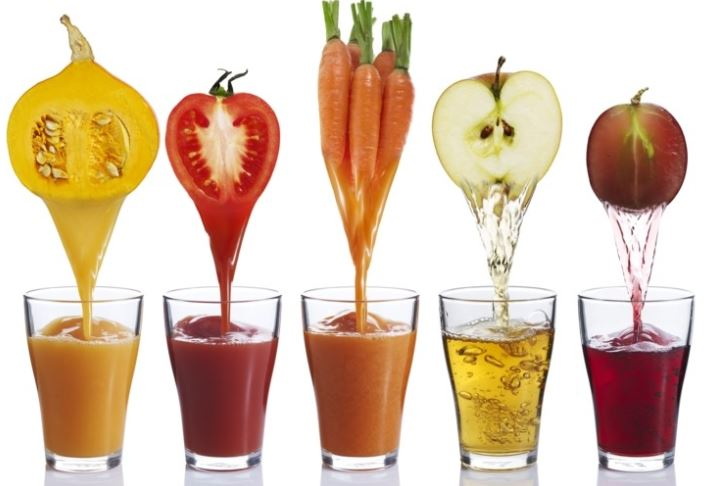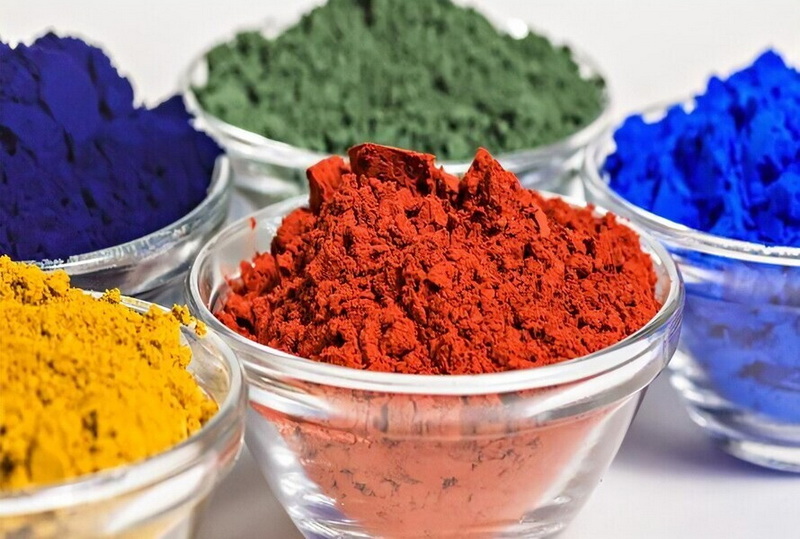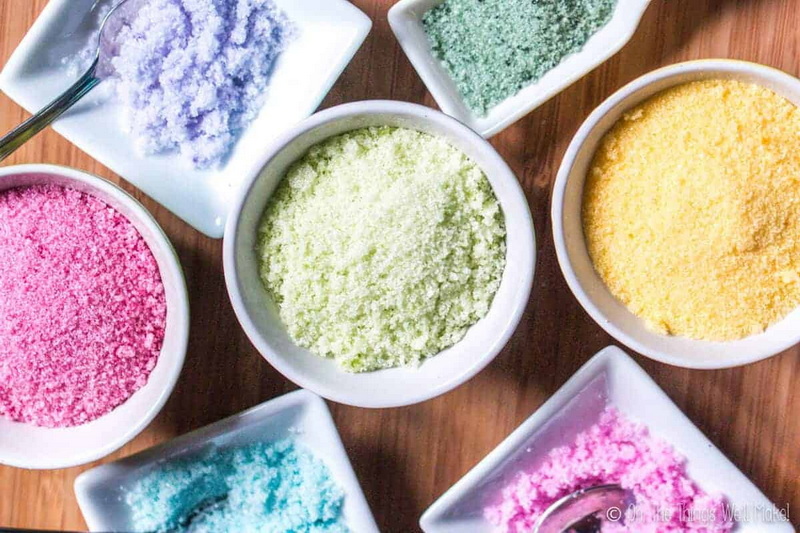Content Menu
● What Are Natural Food Colors?
>> Key Sources of Natural Food Colors
● Why Choose Natural Food Colors?
>> Health and Safety
>> Clean-Label Trends
>> Regulatory Compliance
>> Environmental Sustainability
● Montreal's Role in the Natural Food Colors Industry
● Leading Natural Food Colors Manufacturers and Suppliers in Montreal
>> 1. Naturex (a Givaudan company)
>>> Overview
>>> Product Highlights
>>> Certifications
>> 2. NutraCanada
>>> Overview
>>> Product Highlights
>>> Certifications
>> 3. Bio-K Plus International
>>> Overview
>>> Product Highlights
>>> Certifications
>> 4. Axiom Foods (Canadian branch)
>>> Overview
>>> Product Highlights
>>> Certifications
● Product Portfolio of Natural Food Colors Manufacturers and Suppliers
● Manufacturing Process of Natural Food Colors
>> 1. Raw Material Sourcing
>> 2. Extraction
>> 3. Purification
>> 4. Standardization
>> 5. Formulation and Stabilization
>> 6. Packaging and Distribution
● Quality Assurance and Certifications
● Applications of Natural Food Colors
>> Food and Beverage Industry
>> Nutraceuticals and Supplements
>> Cosmetics and Personal Care
● Innovations in Natural Food Colors
>> Clean-Label Solutions
>> Plant-Based and Vegan Options
>> Microencapsulation
>> Functional Colors
>> Sustainable Sourcing and Circular Economy
● How to Choose the Right Natural Food Colors Manufacturer or Supplier
>> 1. Product Range
>> 2. Customization
>> 3. Quality and Certifications
>> 4. Technical Support
>> 5. Sustainability Practices
>> 6. Supply Chain Reliability
● Conclusion
● FAQ
>> 1. What are the main advantages of using natural food colors over synthetic ones?
>> 2. How do Natural Food Colors Manufacturers and Suppliers ensure product quality?
>> 3. Can natural food colors be used in all types of food and beverages?
>> 4. Are natural food colors stable during processing and storage?
>> 5. What should I consider when choosing a Natural Food Colors Manufacturer or Supplier in Montreal?
In today's health-conscious world, the demand for clean-label, plant-based, and natural food ingredients is rising rapidly. Among these, natural food colors have become essential for food and beverage brands aiming to deliver visually appealing products without synthetic additives. Montreal, as a vibrant hub for food innovation and trade, is home to several leading Natural Food Colors Manufacturers and Suppliers. This article provides an in-depth exploration of the industry landscape in Montreal, key players, product offerings, quality standards, and the future of natural food coloring.

What Are Natural Food Colors?
Natural food colors are pigments derived from fruits, vegetables, plants, minerals, and other natural sources. Unlike artificial colors, they are free from synthetic chemicals and are often preferred for their health benefits and clean-label appeal.
Key Sources of Natural Food Colors
- Turmeric: Provides a bright yellow hue.
- Spirulina: Offers blue and green shades.
- Beetroot: Used for red and pink tones.
- Carrot and Paprika: Source of orange and red.
- Annatto: Gives a yellow to orange color.
- Elderberry: Produces purple and deep red colors.
- Saffron: Known for its intense yellow-orange shade.
- Chlorophyll: Provides natural green color.
Why Choose Natural Food Colors?
Health and Safety
Natural food colors are considered safer as they are less likely to cause allergic reactions or health concerns associated with synthetic dyes. They often contain antioxidants and other beneficial compounds, adding nutritional value to the products they color.
Clean-Label Trends
Consumers increasingly demand transparency, pushing brands to use ingredients that are easily recognizable and perceived as healthier. Natural food colors align perfectly with this trend, helping brands build trust and loyalty.
Regulatory Compliance
Many countries have strict regulations on artificial colors, making natural alternatives a safer choice for global food brands. Natural colors often face fewer restrictions, facilitating easier market access, especially in Europe, North America, and Asia.
Environmental Sustainability
Natural food colors typically have a smaller environmental footprint compared to synthetic dyes. They are biodegradable and often sourced from renewable agricultural products, supporting sustainable farming practices.
Montreal's Role in the Natural Food Colors Industry
Montreal's strategic location, robust food manufacturing sector, and multicultural consumer base make it a thriving market for natural food ingredients. The city boasts advanced research facilities, a skilled workforce, and a strong network of importers, exporters, and distributors. Montreal's manufacturers often collaborate with universities and research institutions to innovate and improve extraction technologies and product stability.
The city's infrastructure supports efficient logistics, enabling manufacturers to serve both local and international markets effectively. Furthermore, Montreal's commitment to sustainability aligns with the values of many natural food colors producers, fostering a community focused on ethical and eco-friendly production.
Leading Natural Food Colors Manufacturers and Suppliers in Montreal
1. Naturex (a Givaudan company)
Overview
Naturex, headquartered in Montreal, is a global leader in natural ingredients, including natural food colors. With decades of expertise, Naturex offers a broad portfolio of plant-based colorants tailored to food and beverage applications. Their commitment to sustainability and innovation makes them a top choice for brands seeking premium natural colors.
Product Highlights
- Beetroot Red
- Turmeric Yellow
- Spirulina Blue
- Annatto Extracts
Certifications
- Organic
- Non-GMO
- Kosher and Halal
Naturex also provides extensive technical support and custom formulation services, helping clients optimize color stability and performance.
2. NutraCanada
Overview
NutraCanada is a Montreal-based supplier specializing in natural extracts and food ingredients, including natural colorants. They focus on high-quality sourcing and innovative extraction methods to deliver vibrant, stable natural colors suitable for various food products.
Product Highlights
- Paprika Oleoresin
- Carrot Orange
- Chlorophyll Green
- Elderberry Purple
Certifications
- ISO 22000
- Allergen-Free
- Organic options available
NutraCanada emphasizes clean-label solutions and offers tailored services to meet the specific needs of food manufacturers.
3. Bio-K Plus International
Overview
Bio-K Plus International is a Canadian company with operations in Montreal, known for its natural and organic ingredients, including natural food colors. Their sustainable sourcing and eco-friendly processing methods appeal to manufacturers focused on environmental responsibility.
Product Highlights
- Saffron Yellow
- Annatto
- Spirulina Blue-Green
- Beetroot Red
Certifications
- Fair Trade
- Vegan
- Organic and Non-GMO
Bio-K Plus International supports customers with technical expertise and flexible supply solutions, catering to both large-scale and artisanal producers.
4. Axiom Foods (Canadian branch)
Overview
Axiom Foods, a global leader in natural ingredients, operates in Montreal to serve North American clients. They provide a comprehensive range of natural food colors derived from fruits, vegetables, and algae, emphasizing product purity and functionality.
Product Highlights
- Turmeric Curcumin
- Beetroot Powder
- Spirulina Extract
- Annatto Oleoresin
Certifications
- USDA Organic
- Non-GMO Project Verified
- Gluten-Free
Axiom Foods offers customized solutions and regulatory support to help clients meet international standards.

Product Portfolio of Natural Food Colors Manufacturers and Suppliers
Natural food colors come in various forms to suit different manufacturing needs:
- Powders: Easy to store and transport, powders are widely used in dry mixes, bakery products, and snacks.
- Liquids: Preferred for beverages, dairy products, and sauces due to their ease of blending.
- Oleoresins: Concentrated extracts often used in meat products, sauces, and dressings for intense color.
- Microencapsulated Powders: Provide enhanced stability and controlled release, ideal for complex formulations.
These colors are applied across many food categories, including baked goods, dairy, beverages, confectionery, snacks, and nutraceuticals.
Manufacturing Process of Natural Food Colors
1. Raw Material Sourcing
Top manufacturers prioritize high-quality, traceable, and often organic raw materials. They work closely with farmers to ensure sustainable harvesting practices and minimal use of pesticides or chemicals.
2. Extraction
Advanced techniques such as solvent extraction, cold pressing, supercritical CO2 extraction, and enzymatic extraction are used to obtain pure pigments. These methods maximize yield while preserving the natural integrity of the color compounds.
3. Purification
Impurities are removed through filtration, centrifugation, and chromatography to ensure color stability, safety, and compliance with food-grade standards.
4. Standardization
Pigments are standardized for consistent color intensity and performance in various food matrices. This step is critical for manufacturers to guarantee batch-to-batch uniformity.
5. Formulation and Stabilization
Natural pigments are often combined with stabilizers, antioxidants, or encapsulating agents to improve shelf life and resistance to heat, light, and pH changes.
6. Packaging and Distribution
Products are packed in food-grade, moisture-proof containers to preserve quality during transit. Packaging sizes range from small samples for R&D to bulk quantities for industrial use.
Quality Assurance and Certifications
Natural Food Colors Manufacturers and Suppliers in Montreal adhere to stringent quality standards. Certifications commonly held include:
- ISO 9001: Quality management systems ensuring consistent product quality.
- HACCP: Hazard Analysis and Critical Control Points for food safety assurance.
- Kosher and Halal: Compliance with religious dietary laws.
- Organic and Non-GMO: Certifications supporting clean-label and health-conscious markets.
- Fair Trade and Vegan: Reflecting ethical sourcing and plant-based product integrity.
These certifications not only ensure compliance but also build trust with international customers and regulatory bodies.
Applications of Natural Food Colors
Food and Beverage Industry
Natural food colors are used extensively in:
- Baked Goods: Cakes, pastries, cookies, and bread benefit from vibrant, natural hues that appeal to consumers.
- Dairy Products: Yogurts, cheeses, ice creams, and flavored milk use natural colors to enhance visual appeal.
- Beverages: Juices, soft drinks, smoothies, and alcoholic drinks incorporate natural colors for attractive presentation.
- Confectionery: Candies, gummies, chocolates, and chewing gums rely on natural pigments for safe and appealing colors.
- Snacks: Chips, popcorn, extruded snacks, and nuts use natural colors to differentiate flavors and varieties.
Nutraceuticals and Supplements
Natural colors improve the appearance of capsules, tablets, powders, and functional foods, making them more attractive and trustworthy to consumers.
Cosmetics and Personal Care
Some manufacturers supply natural pigments for use in cosmetics, soaps, and skincare products, expanding the market beyond food into personal care.
Innovations in Natural Food Colors
Clean-Label Solutions
Montreal suppliers are investing in research to develop colors that are stable, vibrant, and label-friendly. Innovations include natural blends that mimic synthetic colors and reduce the need for multiple additives.
Plant-Based and Vegan Options
With the rise in plant-based diets, demand for vegan-certified natural colors is increasing. Suppliers are developing pigments free from animal-derived ingredients and allergens.
Microencapsulation
Advanced encapsulation techniques improve color stability, solubility, and shelf life. This technology protects pigments from degradation caused by heat, light, or oxygen, making them suitable for a wider range of applications.
Functional Colors
Research is ongoing to develop colors that provide additional health benefits, such as antioxidant properties or vitamins, turning colorants into functional ingredients.
Sustainable Sourcing and Circular Economy
Manufacturers are exploring ways to use by-products from food processing (e.g., carrot peels, beet pulp) as raw materials for natural colors, reducing waste and promoting circular economy principles.
How to Choose the Right Natural Food Colors Manufacturer or Supplier
When selecting a supplier in Montreal or elsewhere, consider the following:
1. Product Range
Evaluate whether the supplier offers the full spectrum of colors needed for your applications, including customized shades.
2. Customization
Top suppliers provide tailor-made solutions to meet specific formulation requirements, including concentration, solubility, and stability.
3. Quality and Certifications
Ensure the supplier adheres to international standards and has relevant certifications to guarantee product safety and compliance.
4. Technical Support
A reliable supplier offers technical assistance, application support, and regulatory guidance to help integrate natural colors into your products effectively.
5. Sustainability Practices
Choose partners committed to ethical sourcing, environmental responsibility, and social impact, aligning with your brand values and consumer expectations.
6. Supply Chain Reliability
Assess the supplier's ability to deliver consistent quality and volume, especially if you plan to scale production or enter new markets.
Conclusion
Montreal stands out as a dynamic center for Natural Food Colors Manufacturers and Suppliers, offering a diverse range of high-quality, safe, and sustainable color solutions for the global food industry. The city's manufacturers combine advanced technology, rigorous quality standards, and a commitment to sustainability to meet the evolving needs of food brands, wholesalers, and producers worldwide.
As consumer demand for clean-label and natural products continues to grow, Montreal's natural food colors industry is well-positioned to innovate and expand. Whether you are a brand owner, wholesaler, or manufacturer, partnering with Montreal's top natural food colors suppliers ensures access to premium products, technical expertise, and reliable service.

FAQ
1. What are the main advantages of using natural food colors over synthetic ones?
Natural food colors are derived from plant, mineral, or animal sources, making them safer and more appealing to health-conscious consumers. They are less likely to cause allergic reactions and align with clean-label trends.
2. How do Natural Food Colors Manufacturers and Suppliers ensure product quality?
Manufacturers implement strict quality control measures, including raw material testing, standardized extraction processes, and certifications such as ISO, HACCP, and organic labels to guarantee safety and consistency.
3. Can natural food colors be used in all types of food and beverages?
Yes, natural food colors are versatile and can be used in baked goods, dairy, beverages, confectionery, snacks, and nutraceuticals, adapting to different formulation needs.
4. Are natural food colors stable during processing and storage?
Advancements in extraction and encapsulation technologies have significantly improved the stability of natural food colors, ensuring vibrant hues even after processing and extended storage.
5. What should I consider when choosing a Natural Food Colors Manufacturer or Supplier in Montreal?
Consider factors such as product range, customization options, quality certifications, technical support, sustainability commitments, and supply chain reliability to select the best partner.

 English
English 




























